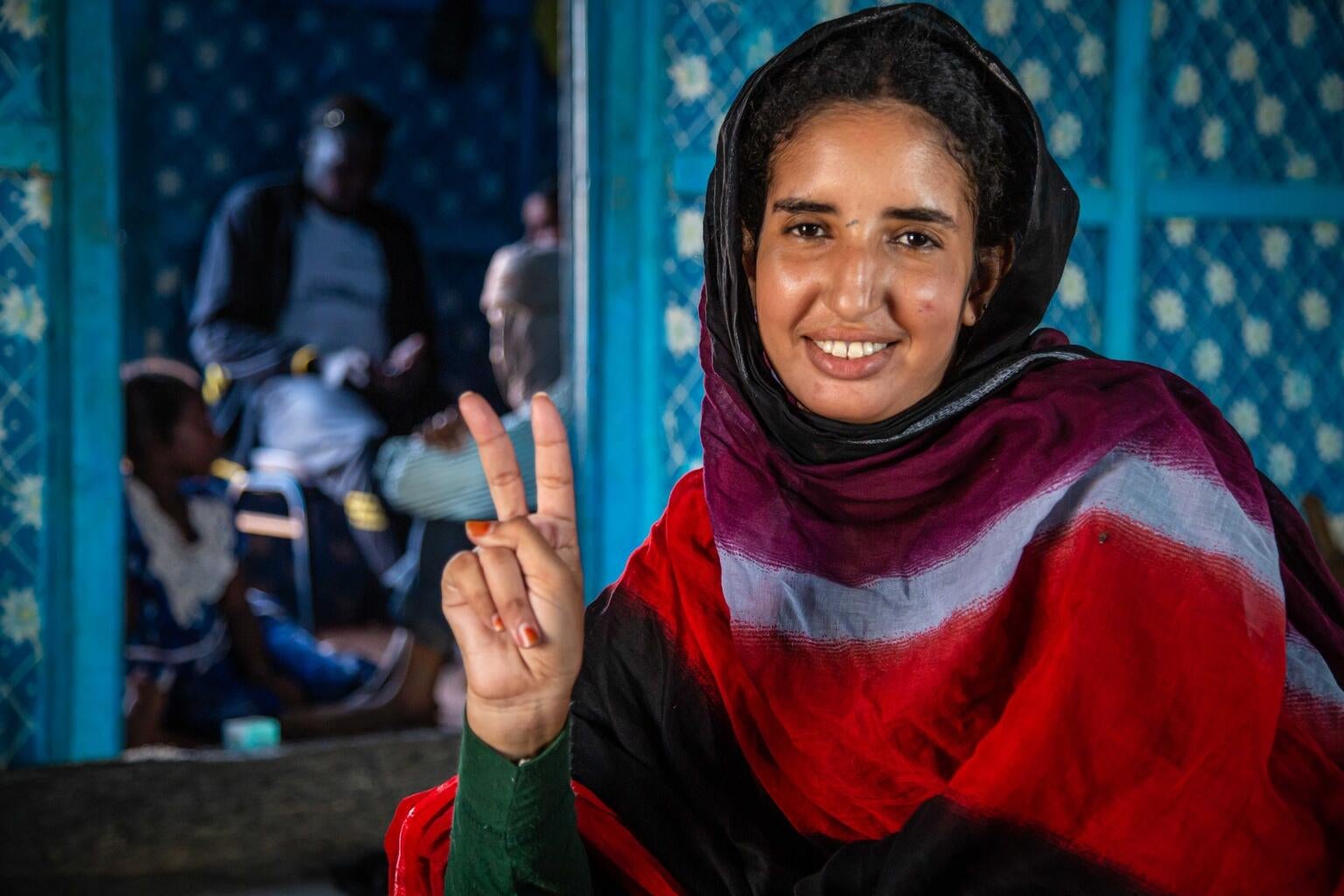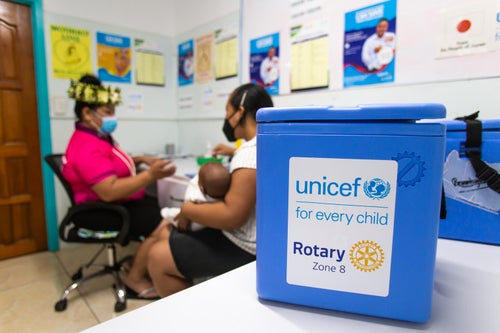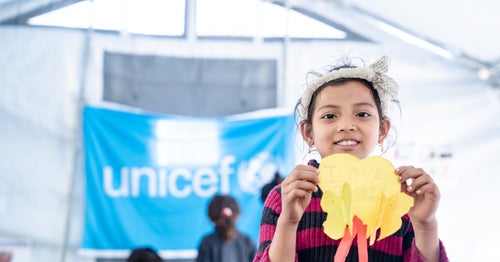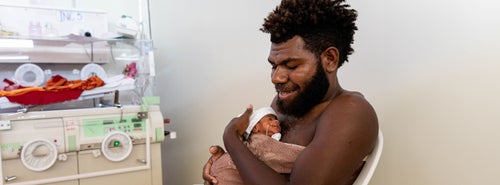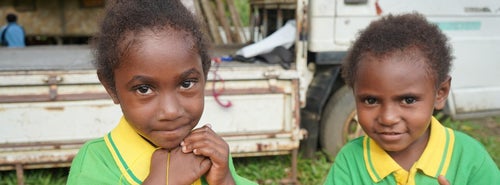In celebration of International Women’s Day, taking place on March 8 this year, we're paying tribute to the incredible contribution of women to the COVID-19 response globally and the protection of children.
The coronavirus pandemic has put unprecedented pressure on health workers. Many are working around the clock to care for patients. Others are increasing community confidence in vaccines by sharing the facts.
There are those managing the logistics to distribute vaccines around the world, and of course, the workers tirelessly administering doses, with the aim of protecting every community.
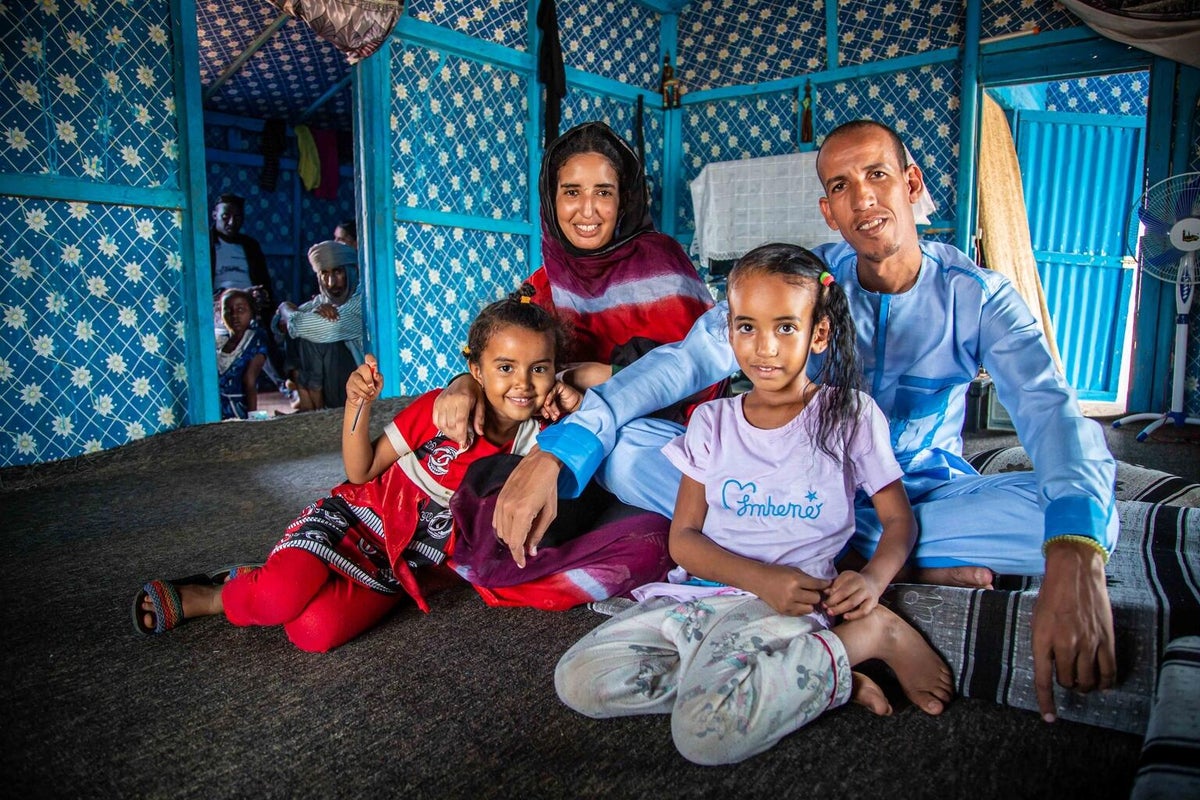
Men, follow Mariam’s lead
Mariam is a Malian refugee. She became the first woman to receive the COVID-19 vaccine in a refugee camp, in south-east Mauritania.
“We often face misinformation," says Mariam, as she speaks about life in the camp. “Many people are illiterate, so it's 'word of mouth' that prevails. It is thanks to vaccination that we can all get out of this pandemic together.”
Mariam reflects on the importance of her role. “First, I show the way to my friends and other women in the community. Second, I hope that my action will motivate men to get vaccinated."
"Now that a woman has done it, [men] can't hide anymore! "
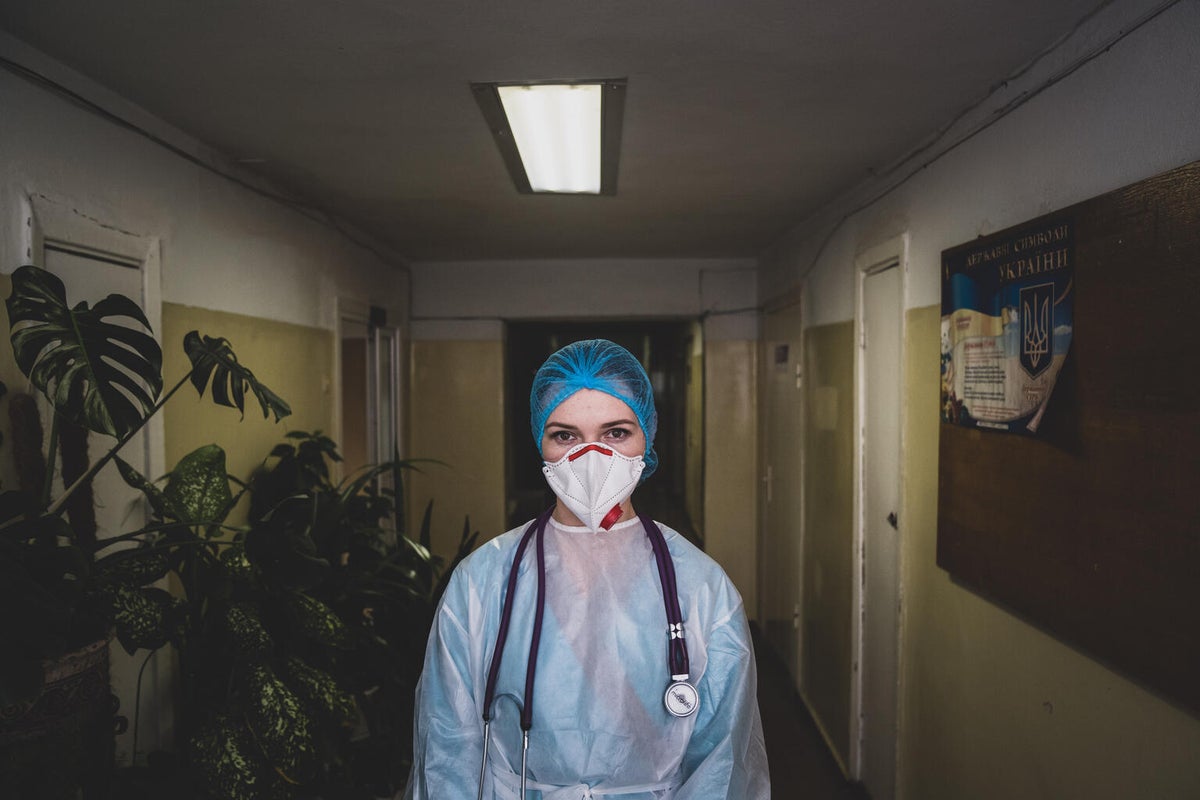
Daria puts patients first
Daria does not even look at the medical files, she knows by heart the names and health parameters of each patient. And even on her only day off a week, the infectious disease specialist can’t forget about her seriously ill patients, whom she has been treating for almost a month.
“In such a long time, you begin to treat patients as relatives. They even come to my dreams at night,” says Daria.
In September 2021, Ukraine was hit by a new wave of COVID-19. The intensive care department of this hospital in Kharkiv was occupied, mostly with the elderly. It’s thanks to women like Daria that they can receive the care they need.
Now as the conflict in Ukraine escalates and people flee for their lives, health care workers like Daria have never been more essential. Please help send life-saving supplies to children and families.
Dr Frances fights forgotten diseases
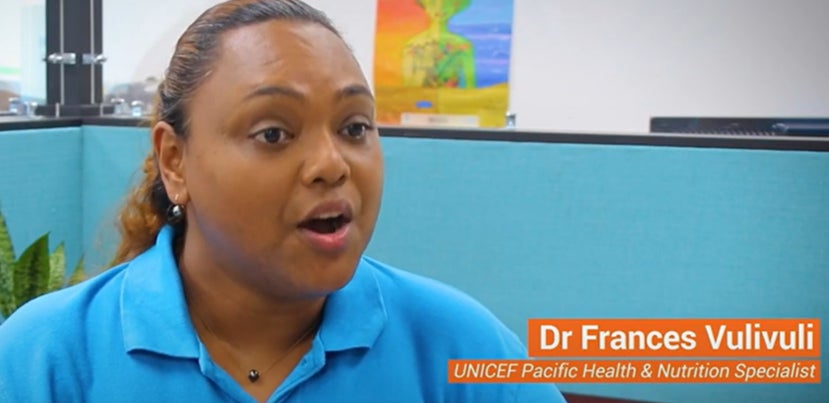
What does it take to deliver life-saving vaccines around the world?
Over mountains and across rivers, UNICEF will always find a way to reach children and communities with life-saving vaccines. Hear from Dr Frances Vulivuli, UNICEF Pacific Health and Nutrition Specialist, about our work in the Pacific.
While much of the world’s attention has been on COVID-19 vaccines, we must not forget work done by health workers around the world to keep children safe and protected. Every day they encourage parents to continue to take their children for routine immunisations and other vital services during the pandemic.
Each year, UNICEF vaccinates almost half of the world’s children against deadly diseases. Our teams work to reach children in the most remote places on Earth.
In the Pacific, pneumonia and diarrhoea are two of the major causes of deaths for children under five. “As a medical professional, it’s difficult to see vulnerable children battling with these diseases,” says Dr Frances Vulivuli, UNICEF Pacific Health and Nutrition Specialist.
Rotary has partnered with UNICEF to help vaccinate 100,000 children in nine Pacific countries against pneumonia, diarrhoea and cervical cancer.
“We are fortunate now that we have life-saving vaccines that can protect our children from pneumonia and diarrhoea.”
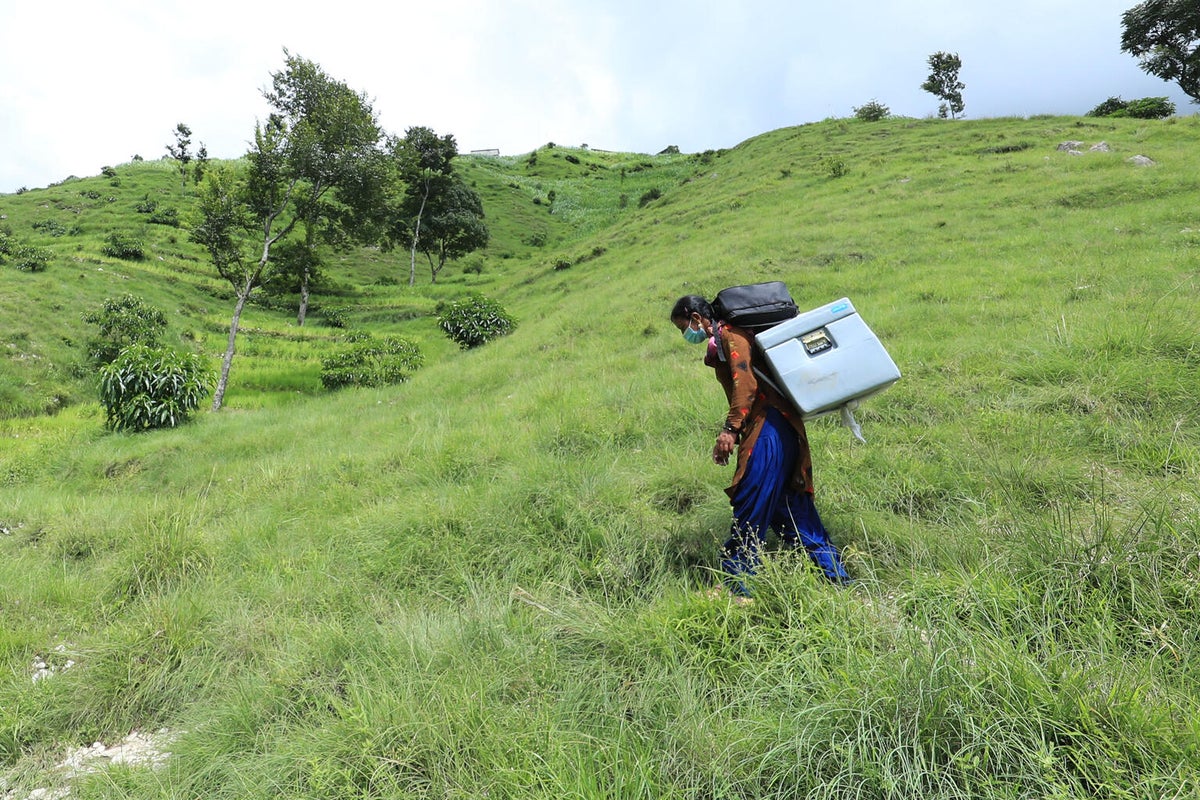
Birma carries precious cargo
Birma weaves her way up and down the hilly pathways in Nepal’s remote far-west with a vaccine box perched firmly on her back. The journey can take between three to four hours.
As a support staff, she is responsible for transporting COVID-19 vaccines to health post in Duhun – located in the upper reaches of the district.
“People are eagerly waiting for vaccines, they ask me constantly when they will arrive, when they can get it, when it will be their turn. All the time,” says Birma.
Until this year, 32-year-old Birma had been carrying a variety of life-saving vaccines meant for the routine immunisation of children in the village, something she continued to do through the COVID-19 pandemic.
Nepal’s health service is bolstered by more than 50,000 female community health volunteers.
Their role has extended during the pandemic, to include informing the public about preventative measures, such as handwashing, as well as sharing facts about vaccinations.
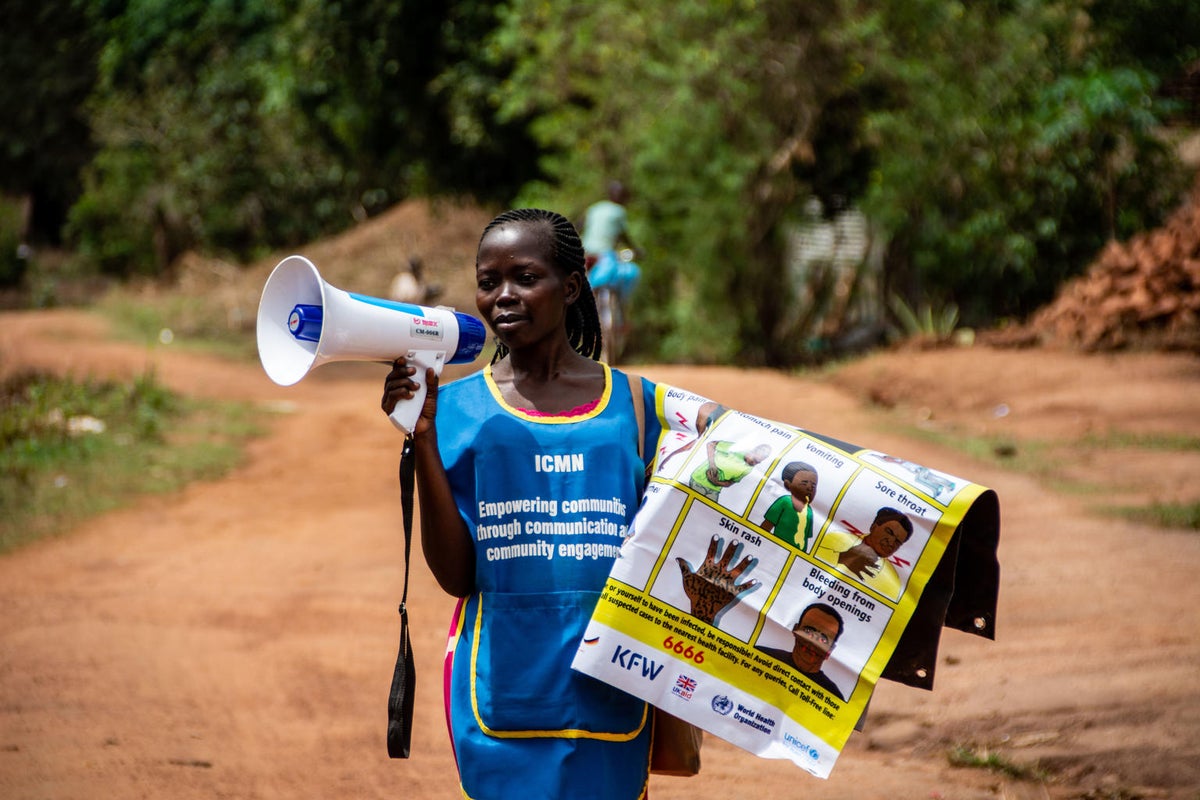
Victoria spreads life-saving information
Victoria is a social mobiliser in South Sudan. She's part of UNICEF's Social and Behaviour Change program, which engages children, youth and communities on issues that affect them.
Access to information is an enormous challenge in South Sudan. Insecurity, displacement, illiteracy, poverty, gender inequities and the fact that 83 per cent of the population live in rural areas – where connectivity is extremely poor – all contribute to the information challenge.
Victoria is one of 2,500 mobilisers who are narrowing the information gap and sharing the facts about COVID-19 prevention and vaccination.
Become a Regular Donor
For every child in crisis.
Related articles
Stay up-to-date on UNICEF's work in Australia and around the world



